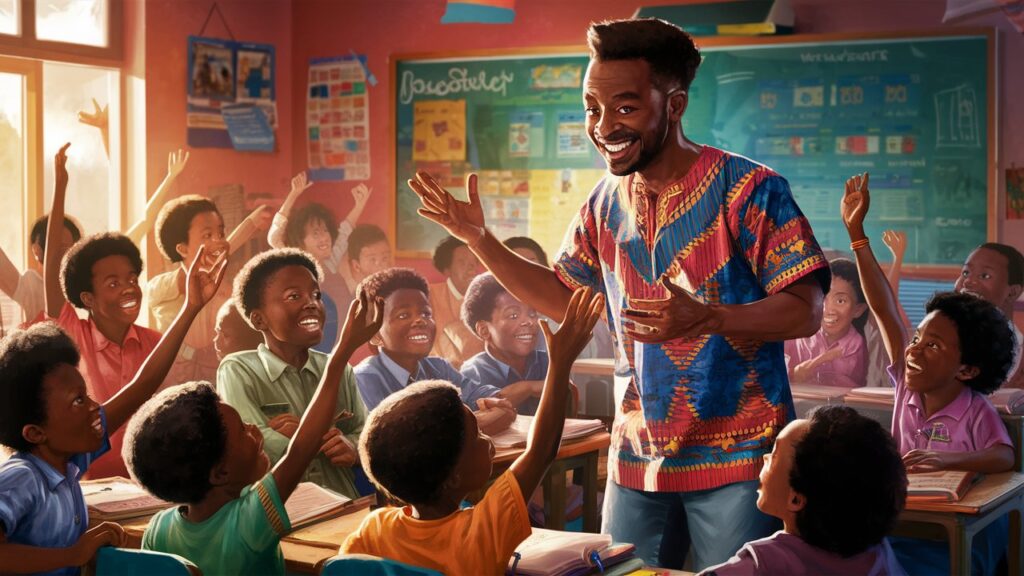Lesson 2: Adaptability

My teaching career commenced at Roan Antelope Secondary School in Luanshya, Copperbelt, in September 2012. I was immediately assigned a very challenging grade 11 class. Initially, I adopted a traditional, authoritative approach, mirroring the teaching styles I had experienced during my own secondary school days. However, this method proved counterproductive. While observing other teachers effectively employ this approach, I discovered that it didn’t resonate with my students at all. I was confused. Instead of engaging them, my approach created resistance and dampened my enthusiasm both for teaching the class and for the teaching profession as a whole. That is when I learnt one of the most important lessons of my life- adaptability.
An Inflection Point
One morning while I was drearily preparing to go to work, I realised that my approach wasn’t working. I had a small frame, meaning I didn’t look very different in terms of stature from the learners. Using an authoritarian approach was only going to breed more nonchalance, and maybe ultimate rebellion. I didn’t have the looks, nor the personality for it. So, I needed to adapt to the situation. Rather than persisting with a counterproductive method, I decided to adapt.
I transitioned from a strict disciplinarian to a more empathetic and collaborative teacher. By setting clear expectations and working together towards them with the learners, I fostered a more positive and productive learning environment. The results were astonishing. 93% of my learners, most of whom could not read according to their grade level when I started teaching them, passed the 2014 examinations. This experience taught me five very important lessons about adaptability.
The Power of Adaptability
- Because Life is Dynamic. Have you set goals? Great. But what happens when the fundamentals upon which you set your goals change? You need to adapt. Life is inherently dynamic. Goals shift, circumstances change, interests evolve. Adaptability allows you to pivot easily, making sure that you stay aligned with your aspirations.
- Because It Causes Personal Growth. Life is about making little course corrections. When your values or priorities change, being adaptable enables you to adjust your course. For example, a young professional might start their career with a strong focus on financial success. However, as they mature, they may prioritise work-life balance and community involvement. Without adaptability, they risk feeling trapped in a career that no longer aligns with their evolving values. Being adaptable allows you to make necessary changes, ultimately leading to your personal growth.
- Because You Become More Valuable to Others. Those who can adapt are seen as more valuable assets in an organisation. This is because your ability to adapt means you can embrace new ideas or novel ways of thinking. It’s also easier to work with more adaptable people than rigid ones. For example, a company transitioning from traditional marketing to digital marketing would highly value employees who can quickly adapt to new digital tools and strategies. Adaptability is a quality highly sought after in leaders.
- Because You Become a Better Leader. Leaders excel in accelerated decision-making. Adaptable people are often quicker decision-makers. They can analyse situations rapidly and implement solutions effectively, saving both time and resources. If you want to be an excellent leader, become adaptable. Over the years, I’ve learnt that as a teacher, your learners respect you more when you make decisions fast and stick to them. I’ve found that to be true when leading a team in a corporate situation.
- Because You Become More Resilient in the Face of Adversity. Finally, when challenges arise, adaptability allows you to bounce back faster. Bad things happen to all of us. Struggles come for all of us. But, by adjusting your perspective and strategies, you can turn setbacks into opportunities for growth. For instance, the country is going through the worst load shedding yet. Many businesses are facing the pressure to close down. This is a very bad situation. However, some businesses are doing their best to adapt by doing what they can to remain afloat. The choice is really ours to make; we can choose to complain, or do something about it.
P.W. Botha said it perfectly, “adapt or die.” While this might seem extreme, it underscores the importance of flexibility in an ever-changing world. By embracing adaptability, you position yourself for success in both your personal and professional life.
Read more
- 13 Life Lessons I Learnt as a Teacher - July 23, 2024
- 13 Life Lessons I Learnt as a Teacher - July 22, 2024
- 13 Life Lessons I Learnt as a Teacher - July 21, 2024
Adapt or die, there is no substitute for adaptability.